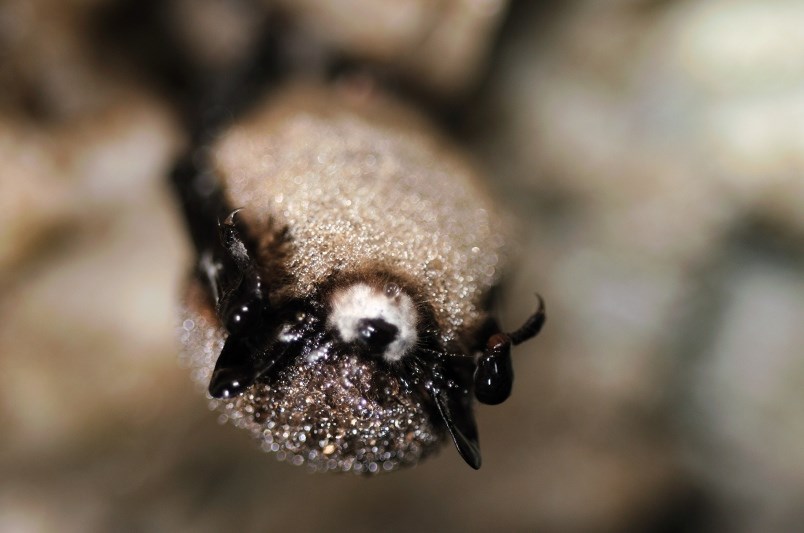B.C.’s Community Bat Program is asking Vancouverites to report any winter bat sightings, or dead bats.
The province’s bats are threatened by disease and researchers are asking the public for help.
White-nose syndrome (WNS), a fungal disease responsible for the death of millions of bats in eastern North America, is spreading to the West Coast. The disease has been confirmed to the west and east of the Cascade Mountains in Washington state, just 150 kilometres south of the B.C. border.
“Detection of WNS in B.C. is challenging because our bats hibernate alone or in small groups across the province,” Many Kellner, provincial coordinator with the B.C. Community Bat Program, said in a press release.
“To monitor the spread of the disease, we need more eyes on the ground. Outdoor enthusiasts and home owners with roosts on their property may be the first to find evidence of trouble.”

Signs of the disease include unusual bat activity in winter and the appearance of dead bats outdoors as they succumb to the effects to WNS.
“We are encouraging the public to report dead bats or any sightings of winter bat activity to the B.C. Community Bat Program…,” Kellner said.
Any bat carcasses will be tested for WNS.
Not every winter bat sighting is cause for concern. Bats are occasionally spotted flying on relatively warm winter days or evenings. Healthy bats may wake up to drink or even eat if insects are active.
If you spot a dead bat, report it to the B.C. Community Bat Program online at bcbats.ca, via email at [email protected], or by calling 1-855-922-2287 ext. 11.
Residents are reminded to never touch a dead bat with your bare hands. If you or your pet has been in direct contact with the bat you will need further information regarding the risk of rabies to you and your pet.
Sleeping bats should be left alone — keep your distance, snap a photo and report it to the B.C. Community Bat Program. If you must move a bat, visit www.bcbats.ca for advice and never touch a bat with your bare hands.
Read more from the



